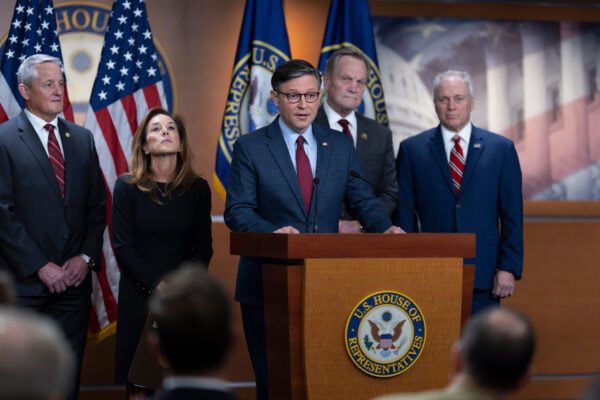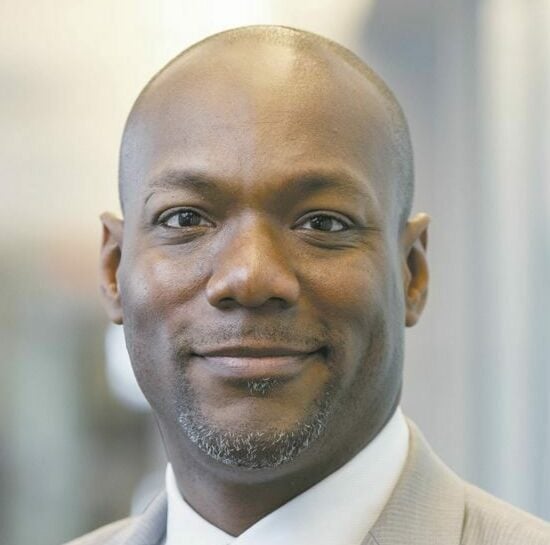Democrats finally opened up to a shutdown. Historically, they have avoided that eventuality at all costs. Times have apparently changed, driven by the fact that a substantial portion of their base is on board with this stance.
Some might even argue that Democrats have advanced along the evolutionary chain; they’re now vertebrates. Having foregone a “clean CR” (Continuing Resolution) in favor of getting politically dirty, Democrats have drawn a clear line in the sand.
Or have they?
As of this writing, Senate Republicans need just five more Democrats to join them in passing the bill that the House approved. They’re no doubt working overtime to convince their more moderate, and perhaps politically vulnerable, colleagues to change their votes to “yea.”
“But behind the headlines are real people who are feeling the very real consequences of this manufactured crisis.”
In the interim, this episode is like a bad rerun on late-night TV. The plot is predictable: politicians playing chicken, engaging in ideological gridlock, and posturing for the cameras. The headlines scream about budget battles, partisan divides, and brinkmanship on Capitol Hill. But behind the headlines are real people who are feeling the very real consequences of this manufactured crisis. Remixing my simile into a metaphor, it’s Kabuki Theater (with bad acting).
What’s going to happen? Who knows. But it’s hard to imagine Republicans feeling enough pressure to cave, even if most Americans blame them. Historically, they have been pretty immune to public sentiment.

Still, there is some speculation that flight delays might actually spur them to action. No, I’m not kidding. Constituents seem to be more upset about arriving on time than they are about government workers missing paychecks or their neighbors’ Medicare benefits being halted.
In terms of other options, I’m certain that the only thing preventing Republicans from using “the nuclear option” (i.e., ramming legislation through with 51 votes instead of the 60 that are currently required) is the fear of what would happen once Democrats re-take the Senate. It’s also worth noting that, if a deal is not reached by this weekend, there likely won’t be one for quite a while, given that Trump is leaving town for a multi-nation Asian visit.
In any case, the work stoppage is – at this point – still shy of the longest one in our history (i.e., 35 days during the first Trump Administration). Yet, it’s the third longest ever. And it’s important to remember that its consequences are already being felt.
For example, an estimated 750,000 federal workers are now on furlough. These aren’t faceless bureaucrats; they’re hardworking Americans who dedicate their lives to public service. They’re the folks who process our Social Security checks, inspect our food, protect our national parks and provide crucial services.
These people are our friends and family members. They’re wondering how they’re going to pay their bills, put food on the table and keep a roof over their heads. This pain will spread and grow more acute as time ticks on without a resolution.
“… the uncertainty surrounding the shutdown is creating anxiety and instability for businesses and families alike.”
Beyond the immediate impact on federal employees, the shutdown has ripple effects throughout our economy. Small businesses that rely on government contracts are struggling. Tourism at national parks is grinding to a halt. Vital research projects are being delayed. In short, the uncertainty surrounding the shutdown is creating anxiety and instability for businesses and families alike.
What’s truly frustrating is that this shutdown was entirely preventable. It’s a result of our elected officials’ affirmative decision not to compromise in favor of the best interests of the American people. Instead of working together to find common ground, they’re more interested in scoring political points and appeasing their respective bases.
So, how can we break this cycle of shutdowns and gridlock?
First, we need to hold our elected officials accountable. We must demand they put aside their political games and start working together to address our nation’s challenges. We must tell them that we’re tired of the shutdowns, the brinkmanship and the endless partisan bickering.
Second, we must engage in constructive dialogue with those who hold different views. It’s easy to retreat into our echo chambers surrounded by people who agree with us. But if we’re going to bridge our divides, we must be willing to listen to and learn from those who see the world differently.
Finally, we must remember we’re all Americans and we all have a stake in the success of our country. The government shutdown is a reminder of how fragile our democracy is and how important it is for us to work together to build a more just and equitable society.
This shutdown isn’t just about budgets and politics; it’s about our values, our priorities and our commitment to one another. Let’s not allow this crisis to define us. Let’s use it as an opportunity to come together, to demand better from our leaders and to build a future where government shutdowns are a thing of the past.
We’re all in this boat together; we need to start rowing in the same direction.





